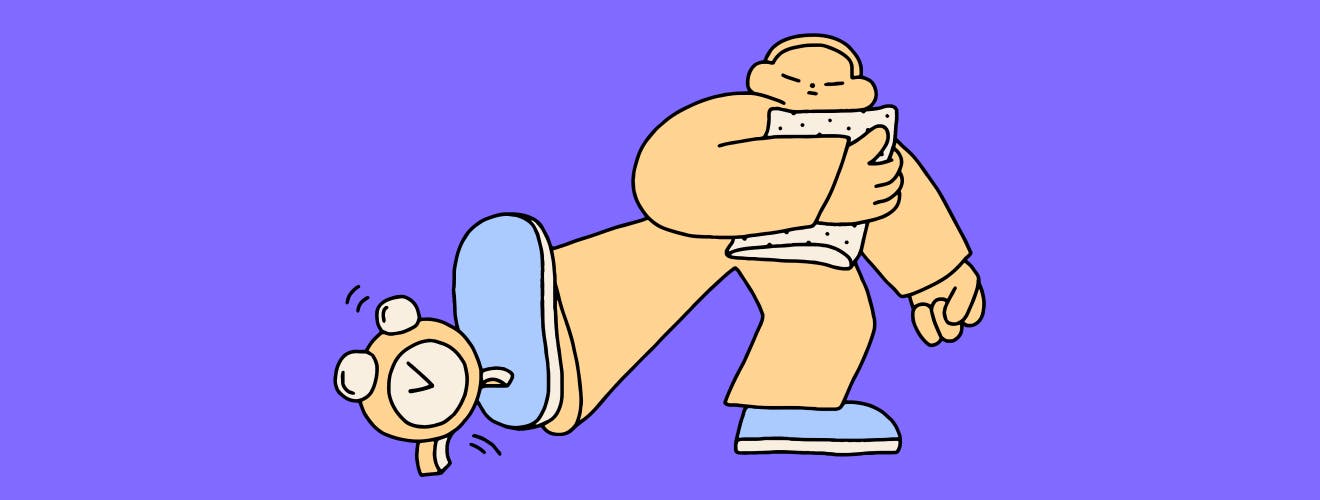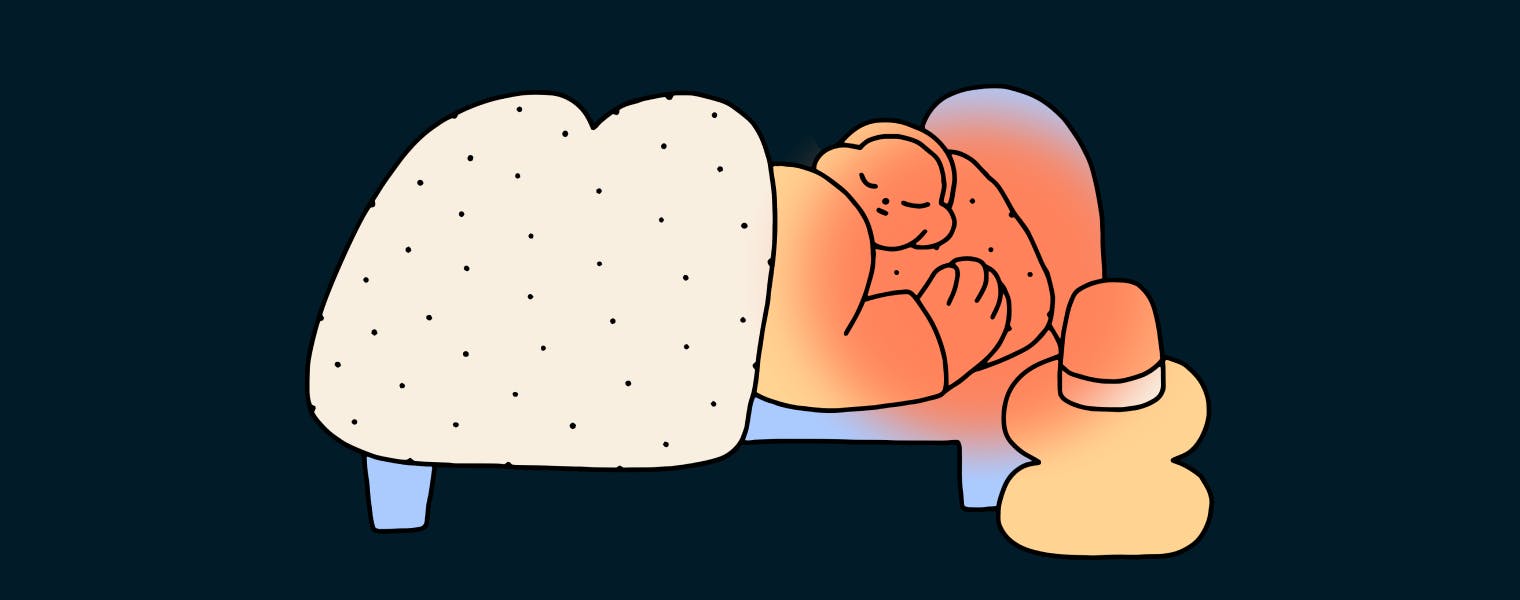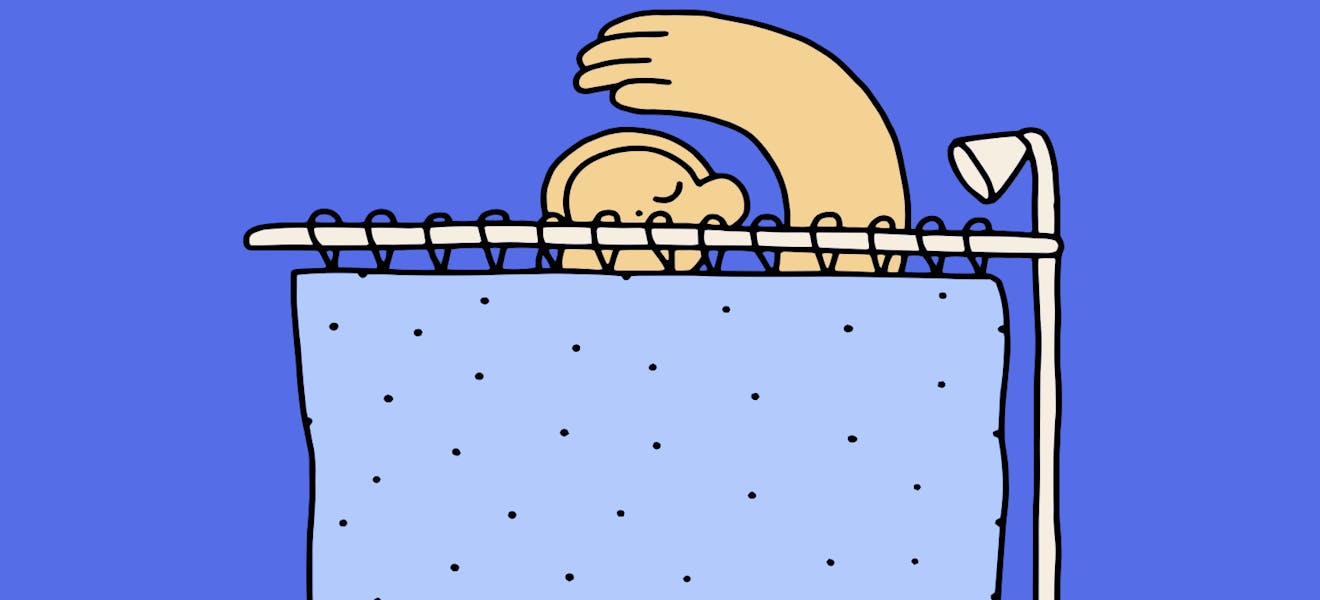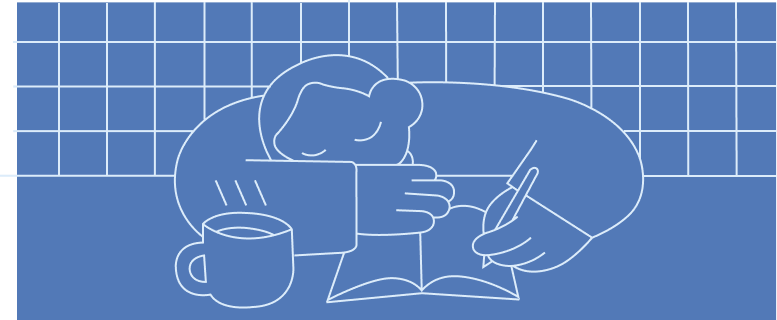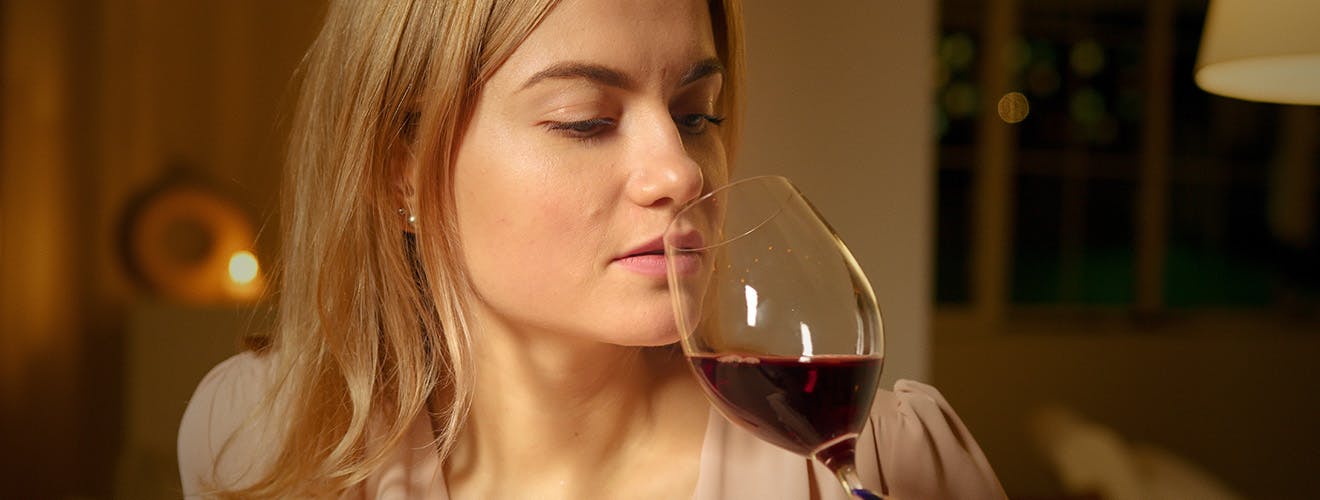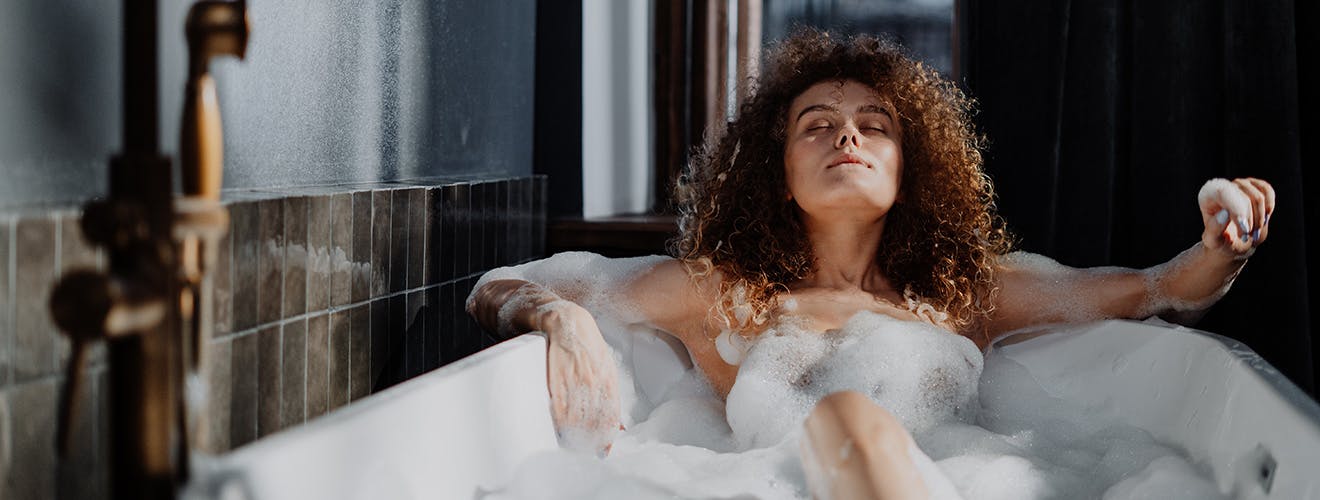Can't Sleep After Drinking? Here's Why
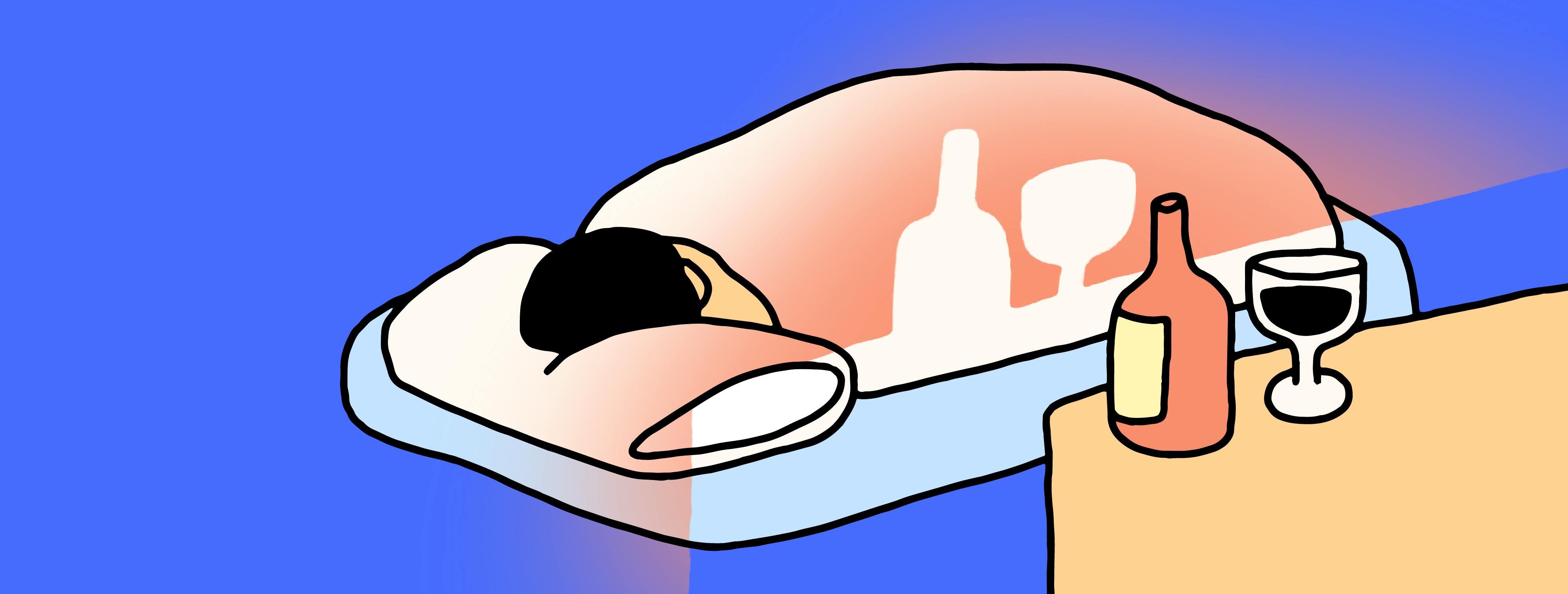
Let’s be honest, most of us have tried winding down with a drink or two before bed. And while it's true that alcohol has some sedative effects, most individuals will find they can’t sleep after drinking, or at least not very well.
Overindulging in alcohol impacts your ability to experience a good night's sleep by disrupting the body’s circadian rhythm. Heavy drinking is also tied to reduced quality of sleep, excessive daytime sleepiness, and slower mental performance. As it turns out, when it comes to sleep, alcohol is much more of a foe than a friend.
Besides, alcohol shouldn’t be your go-to to help you fall asleep at night. It’s been found that even smoking weed is better than trying to use alcohol as a sleep aid before bed. It’s important to establish healthy sleep habits that make falling asleep and staying asleep easier. If you need some extra help there are also non-habit forming sleep aid alternatives that you can use to get a full night’s sleep. Read on below to learn more.
Why Can’t I Sleep After Drinking?
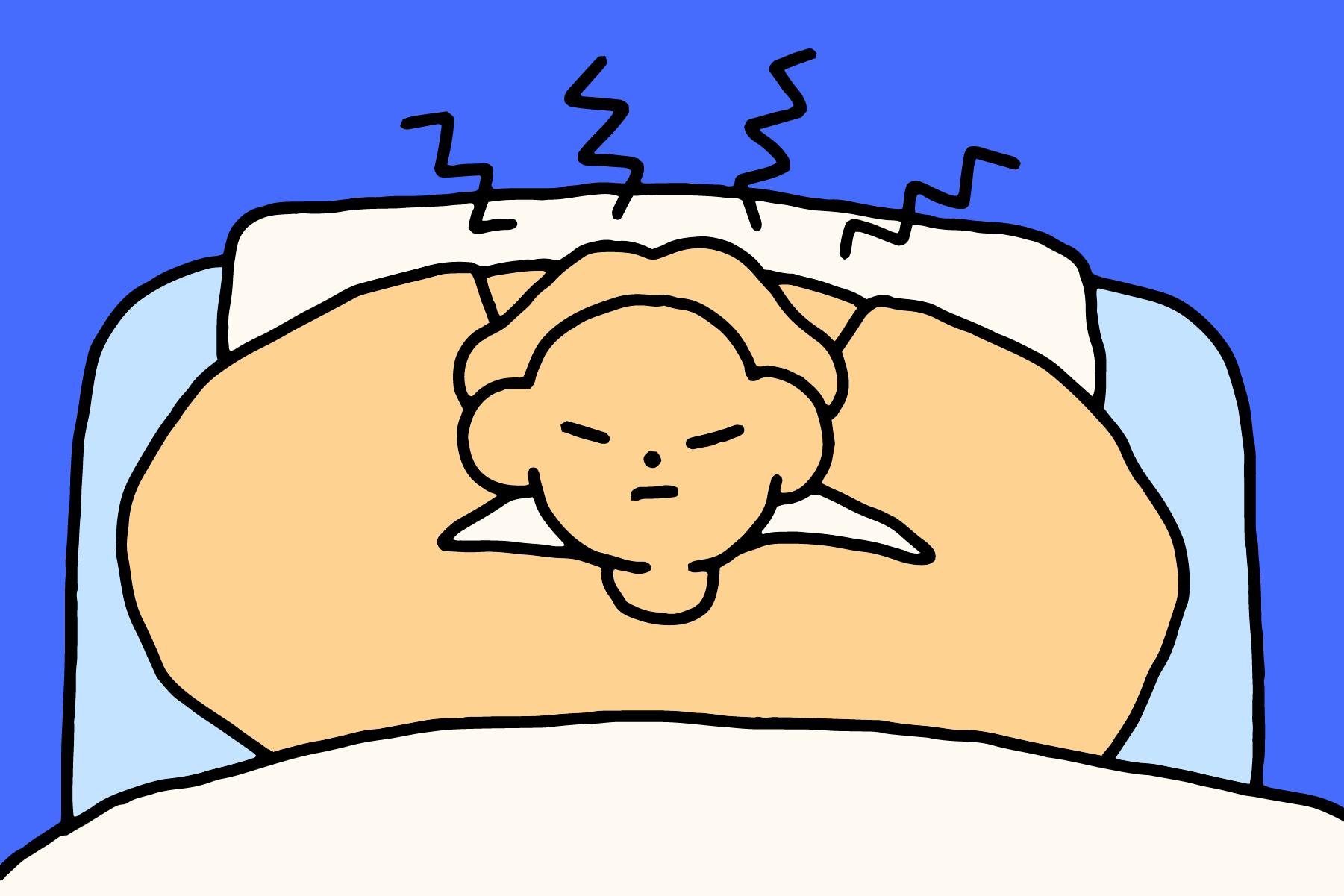
First, let’s discuss how alcohol affects sleep. To begin with, alcohol is a nervous system depressant, meaning it slows down brain activity. While you may experience a boost of energy and elation after the first couple of glasses, those effects won't last all night. In fact, you're pretty likely to wake up feeling lousy.
To put things in more scientific terms, alcohol affects the gamma-aminobutyric acid, or GABA, a neurotransmitter that slows impulses between nerve cells, which can make you feel relaxed at first. But while it can initially put you to sleep, the second half of the sleep cycle is where you experience the most sleep issues.
Even one drink can decrease sleep quality by 9.3%. High amounts of alcohol will lead to even less sleep and decrease sleep quality by nearly 40%.
1. Decreased Rapid Eye Movement (REM) Sleep
There are primarily two stages of sleep in a normal sleep cycle. The NREM (Non-rapid eye movement) stage and the REM (rapid eye movement) stage. Alcohol affects the latter stage.
Alcohol intake before bed is associated with more slow-wave sleep patterns, a portion of NREM sleep characterized by lower brain activity.
But alcohol inhibits REM sleep, the stage in your sleep cycle associated with dreaming and deep sleep. As your liver metabolizes the alcohol in your body, alcohol leaves your system. It reverses the initial sedative effects and starts pulling you out of your REM cycle. So at best, you're just getting some light sleep as opposed to deep restorative sleep. Depending on the amount of alcohol consumed, a reduction in REM sleep will affect overall sleep quality and you'll wake feeling the effects.
On top of that, heavy alcohol intake and binge drinking can change your melatonin (the sleep regulating hormone) levels for up to a week after alcohol use.
2. Insomnia
There is also a solid connection between heavy drinking and sleep disorders, like insomnia. About 30% of people who suffer from chronic insomnia have reported that they self-medicate with alcohol to help them sleep.
However, this tends to create more sleep problems. After all, people can develop a tolerance to alcohol pretty quickly, meaning higher doses are required to achieve the same relaxing effects.
3. Aggravated Sleep Apnea
Alcohol also affects the body, not just the brain. It increases blood flow to the skin, creating the illusion of warmth. In reality, heat is evaporating through the skin faster than usual, causing body temperatures to fall.
Alcohol also relaxes the muscles, which sounds nice in theory, but can lead to major problems before bed. Constricted breathing can occur if the muscles in the throat relax too much. This leads to a condition known as obstructive sleep apnea, which causes lapses in oxygen to the brain.
According to the Sleep Health Foundation, alcohol can increase the risk of sleep apnea by 25%. So if you already have sleep apnea, it's not a good idea to exacerbate it by drinking before bed.
4. Dehydration and Dry Mouth
If you've ever fallen asleep drunk, you've probably woken up in the middle of the night to chug that glass of water on your nightstand.
That's because alcohol is extremely dehydrating. Alcohol is a diuretic, meaning it causes your body to flush fluids through your renal system, which includes your kidneys and bladder. So, if you are not taking in enough water while you knock back a few drinks, your body will be losing fluids faster than you can replace them.
The effects of dehydration can leave you with a raging headache, make you feel dizzy, and lead to all-around wretchedness when you wake. This is even more prevalent in older adults. As we age, our metabolism slows down and our body is not able to flush out the toxins as quickly. Just think about the hangover in your 20s versus the pitiful affair that is the hangover in your 30s.
5. Frequent Trips to the Bathroom
Speaking of losing fluids, if you fall asleep after drinking alcohol, it's likely you'll be awake in a matter of hours to run to the bathroom. Getting up in the middle of the night to pee can make it difficult to get back into your sleeping rhythm and resets the entire cycle.
So, How Many Hours Before Bed Should I Stop Drinking?
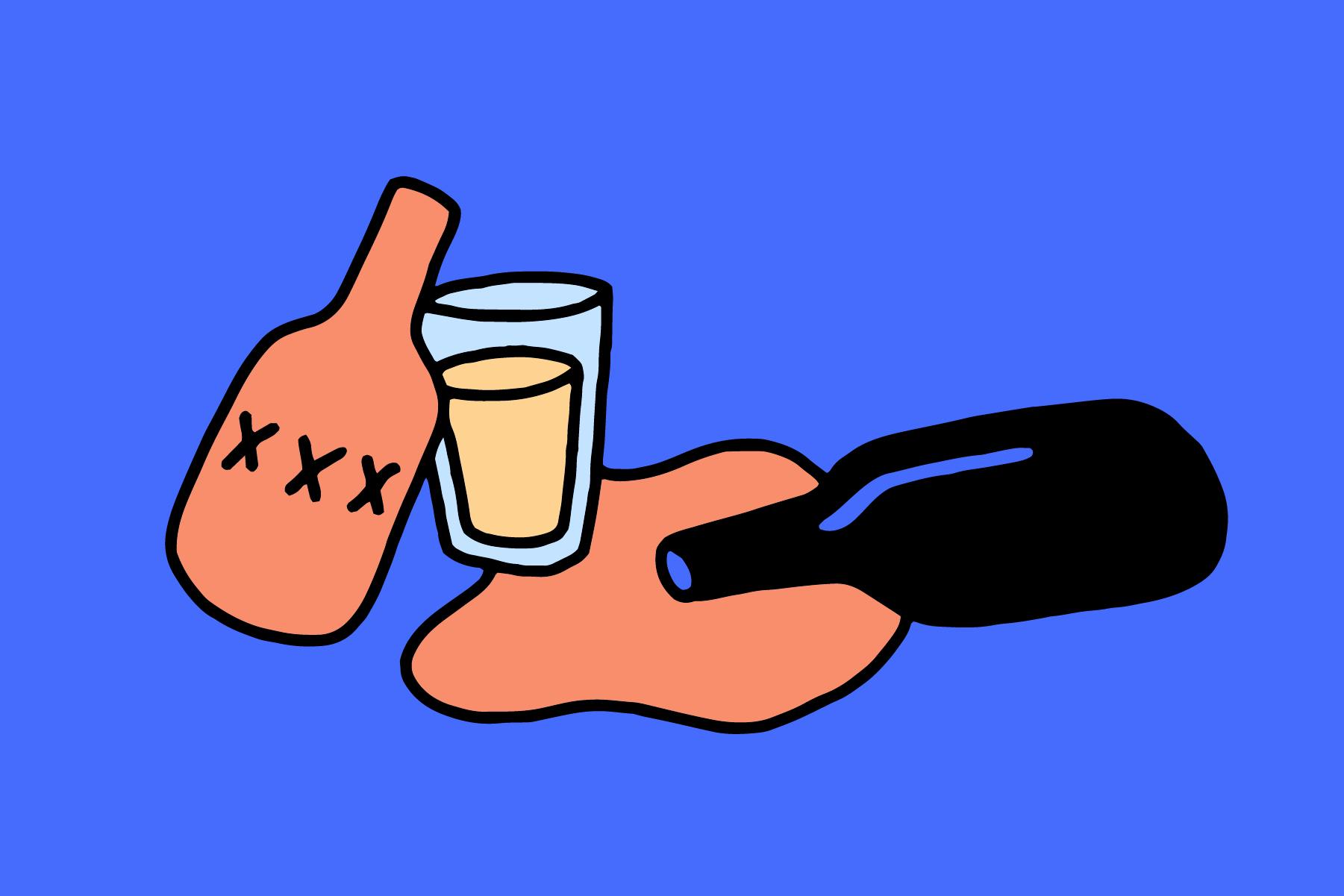
If you choose to drink alcohol, you should have your last drink at least a few hours before bedtime. The Sleep Health Foundation recommends that you stop drinking alcohol about four hours before going to bed. If you cut it too close to sleep time, you'll likely be wide awake before your body is ready and feel tired for the rest of the day.
So if you're having drinks with dinner, you may want to take it easy after the appetizer.
Also, Don't Drink And Do This
One thing you never want to do is mix alcohol and sleeping pills. Alcohol already sedates you, so combining it with another sedative can lead to low blood pressure and difficulty breathing. Mixing alcohol and benzos (benzodiazepines) is particularly dangerous.
Ok, So I Want to Have a Drink Before Bed. How Can I Protect My Sleep?
Sleep specialists recommend an average of eight hours of sleep for a good night's rest. If you're planning on drinking before bedtime we recommend that you keep it to a small glass of spirits or a wine or two, but if you've got to go harder then we recommend the following:
- Drink plenty of water: Drink at least 8 ounces of water between every couple of drinks. This will slow down the absorption of alcohol in your bloodstream.
- Be sure to eat something: never drink on an empty stomach. It's important to have a balanced meal to help offset alcohol absorption.
- Don’t overindulge: Drinking can be fun, but you're robbing your happiness for the following day. Try to keep it to a minimum before calling it a night.
- Give your body enough time to process: Try to stop drinking alcohol at least a few hours before the night is over. This will allow your body to break down the alcohol before you go to sleep.
- Don’t mix different types of alcohol: Beer before liquor never been sicker? Not necessarily. It's really the amount of alcohol you consume, not the order that will make you stay awake and feel like crud the next morning. The only thing mixing alcohol will do is make it difficult to keep track of your alcohol intake.
Alternative Solutions
If you cut out alcohol from your nightly routine and still find it hard to stay asleep throughout the night, you may want to speak to a sleep medicine specialist. But there are also other resources you can use to help with sleeping throughout the night.
Sandland Sleep offers products that help you fall asleep, stay asleep, and generally help you become more relaxed for your bedtime routine. While most sleep aids work by knocking you out, causing grogginess the next day, Sandland Sleep works with your body clock and coaches your system into healthy sleep habits.
If you have trouble getting sleepy at night, Sandland Sleep Fall Asleep under-tongue tabs will help you fall asleep within fifteen minutes. The tabs only use a small amount of melatonin, which doesn't provide the morning hangover that typical melatonin tablets do.
If you're looking to stay asleep, Sandland Sleep Stay Asleep kicks in an hour and can provide up to eight hours of quality sleep, without disruption. We also offer a discounted bundle, The Sleep Set, to help you fall asleep and stay asleep throughout the night.
If you're already feeling tipsy and can't sleep you really just have to wait for it to get out of your system. There are a couple things you can do though to make this process go by faster. Drink plenty of water. This will help you flush it out of your system more quickly. Also, if you're actively trying to fall asleep it's a good idea to keep off your mobile phone as the blue light will keep you awake and prevent you from getting good sleep.
Drink water and make sure you have some food in your belly. If you're still having trouble sleeping, don't try to take another sleep aid. Mixing booze with sleeping pills can have dangerous consequences.
Drinking alcohol can increase your heart rate and widen your blood vessels, which leads to body temperature increase and excessive sweating. But if you're already asleep the effects of alcohol should be waning after the first stage of sleep. If you are experiencing night sweats, it could be a sign of alcohol withdrawal and you may want to reconsider your alcohol consumption.
If you are only going to have a glass or two as a nightcap you're probably not going to feel any significant sleep disturbance. It's when you push it to more than a few, you're going to wake up feeling sick. Red wine has its own heart benefits if you keep it within reason.
